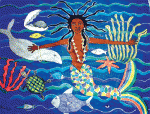
Mami Wata
Mami Wata is a female figure important to religious and social life in many parts of Africa. In some cultures she is a goddess. In others, the term Mami Wata refers to women who have the qualities of Mami Wata, including exceptional beauty and great power. Throughout western and central Africa, Mami Wata is a beautiful river goddess with long […]
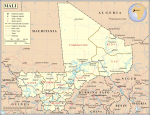
The Republic of Mali
POPULATION: 17.09 million (2014) AREA: 478,767 sq. mi. (1,240,007 sq. km) LANGUAGES: French (official); Bambara, numerous others NATIONAL CURRENCY: C.F.A. Franc PRINCIPAL RELIGIONS: Muslim 90%, Traditional 9%, Christian 1% CITIES: Bamako (capital), 919,000 (1999 est.); Mopti, Segou, Kayes, Gao, Kimparana ANNUAL RAINFALL: Varies from 20–60 in. (500–1,500 mm) in the south to 0–7 in. (0–175 mm) in the Sahara region ECONOMY: GDP $12.07 […]
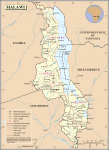
The Republic of Malawi
POPULATION: 16.70 million (2014) AREA: 45,747 sq. mi. (118,484 sq. km) LANGUAGES: English, Chewa (both official); Tonga, Yao, Tumbuka, Lomwe NATIONAL CURRENCY: Kwacha PRINCIPAL RELIGIONS: Protestant 55%, Muslim 20%, Roman Catholic 20%, Traditional 5% CITIES: Lilongwe (capital), 395,500 (1994 est.); Blantyre, Zomba, Mzuzu ANNUAL RAINFALL: 30–40 in. (760–1,010 mm) ECONOMY: GDP $4.258 billion (2014) PRINCIPAL PRODUCTS AND EXPORTS: Agricultural: tea, tobacco, sugar, cotton, […]
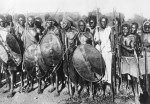
Maji Maji
Between 1905 and 1907 several small ethnic groups from Tanganyika (present-day TANZANIA) rebelled against German colonial authorities in an uprising known as the Maji Maji Rebellion. Although unsuccessful, the rebellion was one of the most important events in the history of East Africa. The Maji Maji Rebellion was centered in the southern highlands of German East Africa, a colonial territory […]
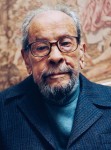
Mahfouz, Naguib
1911–2006 Egyptian writer Author of 40 novels and short story collections and more than 30 screenplays, Naguib Mahfouz received the Nobel Prize for literature in 1988. He was the first Arabic author to win that honor, which brought attention to his work and to modern Arabic fiction in general. During most of his writing career, Mahfouz also worked in […]

Maherero, Samuel
ca. 1854–1923 Chief of the Herero Samuel Maherero became chief of the HERERO people of NAMIBIA after the death of his father in 1890. Baptized and schooled by German missionaries, Maherero cooperated with German colonists who arrived in Namibia about this time. By selling land to the Germans, he obtained their support in overthrowing and conquering rival Herero chiefs. In […]
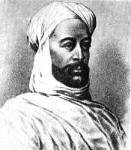
Mahdi, al-
ca. 1840–1885 Sudanese religious leader Al-Mahdi, the founder of an Islamic religious movement, seized control of SUDAN and established an empire that lasted for nearly 20 years. Born Muhammed Ahmad ibn Sayyid Abdullah, he began religious studies at an early age and joined a religious order in the capital city of KHARTOUM. He eventually left the order and moved […]

Maghreb
Maghreb, or Maghrib, is an Arabic word meaning “west” or “place of sunset.” It refers to the area of North Africa west of EGYPT. Known in ancient times as Africa Minor, the Maghreb refers to MOROCCO, ALGERIA, TUNISIA, and sometimes LIBYA. The interior desert regions of these countries are not always considered part of the Maghreb. The Maghreb contains […]

Madagascar
POPULATION: 23.57 million (2014) AREA: 226,658 sq. mi. (587,044 sq. km) LANGUAGES: Malagasy and French (both official) NATIONAL CURRENCY: Malagasy franc PRINCIPAL RELIGIONS: Traditional 52%, Christian 41%, Muslim 7% CITIES: Antananarivo (capital), 1,507,000 (2000 est.); Mahajanga, Toamasina, Fianarantsoa, Antseranana ANNUAL RAINFALL: Varies from 120–190 in. (3,000–5,000 mm) on the east coast to 20 in. (510 mm) in the southwest ECONOMY: GDP $10.59 billion […]
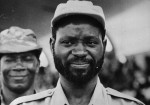
Machel, Samora Moises
1933–1986 President of Mozambique Samora Machel was a leader of the independence struggle in MOZAMBIQUE who became the country's first president in 1975. He became politically active as a young man, joining the movement known as FRELIMO that was dedicated to Mozambique's independence. He volunteered for FRELIMO military training in ALGERIA and was later sent to Mozambique to participate in […]
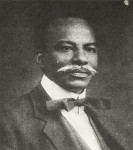
Macaulay, Herbert Samuel Heelas
1864–1946 Nigerian political leader Considered the founder of Nigerian nationalism, Herbert Samuel Heelas Macaulay promoted self-government in NIGERIA in the early 1900s. Born into an educated, Christian Nigerian family, Macaulay attended school in Lagos. In 1890 he won a scholarship from Nigeria's British colonial government to study abroad. After earning a degree in civil engineering in England, he returned to […]
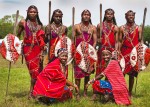
Maasai
The Maasai are made up of about a dozen ethnic groups who live in the Rift Valley of east Africa, primarily in KENYA and TANZANIA.These groups speak a language called Maa and share many cultural characteristics,such as the way they dress. Their social systems are based on clans and age-sets, groups of people of the […]
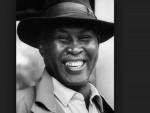
Lutuli, Albert
1898–1967 South African political leader Albert Lutuli was president of the African National Congress (ANC), a black-led political party in SOUTH AFRICA that fought for African rights. In 1960 he won the Nobel Peace Prize for his leadership in the nonviolent struggle against racism. The son of a preacher, Albert John Mavumbi Lutuli was born in Southern Rhodesia (present-day […]
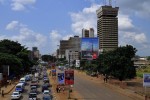
Lusaka
Lusaka, the capital of ZAMBIA, is a sprawling city of about 1.5 million people located in an agricultural region. A financial and commercial center, the city lies at the junction of major rail lines heading to the Copper Belt, the city of Livingstone, and TANZANIA. Lusaka became the capital of the British colony of Northern Rhodesia in 1935. The […]
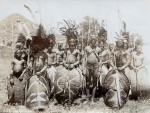
Luo
The Luo, an ethnic group of East Africa, inhabit a region on the eastern side of Lake Victoria. They trace their descent from people who migrated south from the Nile Valley region of southern SUDAN about 500 years ago. The majority of the Luo live in KENYA, but sizable numbers are also found in UGANDA and TANZANIA. Luo territory […]
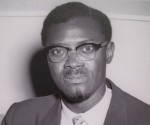
Lumumba, Patrice Emery
1925–1961 Congolese political leader Patrice Emery Lumumba was the first prime minister of Zaire, the country now called CONGO (KINSHASA). Known for his fervent nationalism and his commitment to freeing Africa from colonial rule, Lumumba played a leading role in gaining independence for his country. Born in the Kasai province of the Belgian Congo, Lumumba received a basic education at […]
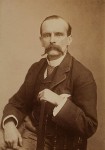
Lugard, Frederick John Dealtry
1858–1945 British colonial administrator Frederick John Dealtry Lugard played an important role in British colonial Africa. Lugard worked to end African slavery and slave trading. He also created the system of “indirect rule,” which gave traditional African authorities considerable control over their local affairs. Born in India of missionary parents, Lugard attended school in England and began a career in […]
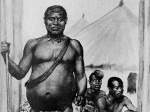
Lobengula
ca. 1836–1894 King of Matabeleland Lobengula was the last ruler of the NDEBELE kingdom of Matabeleland in present-day ZIMBABWE. After the death of his father, MZILIKAZI, the founder of the kingdom, civil war broke out. Lobengula eventually won the war, and he took the throne in 1870. However, the kingdom remained in chaos. Lobengula spent much of his reign […]
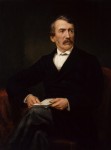
Livingstone, David
1813–1873 British missionary and explorer David Livingstone went to Africa as a missionary in the mid-1800s and became one of the continent's leading explorers and geographers. He also played a key role in the movement to end the SLAVE TRADE. Born in Blantyre, Scotland, Livingstone began work in a cotton mill at the age of ten. Determined to become a […]

Livestock Grazing
Livestock grazing, also known as pastoralism, has been practiced in Africa for many thousands of years. Nomadic herding cultures existed throughout the continent long before the arrival of Europeans. As colonial governments seized land for agriculture and industry, many pastoral societies were forced to abandon or modify their traditional lifestyles. Nevertheless, some African peoples still depend on herding for their livelihood. […]
Literature
African literature has developed from sources and influences that originated both within and outside of the continent. One major source, Africa's rich tradition of oral stories and histories, is much older than the continent's written literature. Written scripts arose in Africa in Egyptian hieroglyphs, a complex system of picture-writing used by the ancient Egyptians. However, written scripts using alphabets and […]
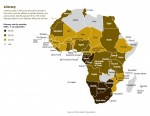
Literacy
One of the greatest challenges facing modern Africa is increasing the rate of literacy—the ability to read and write—among its population. Studies have shown that literacy leads to improvements in many areas of life. These include better health and nutrition for mothers and their children, a lower infant death rate, higher productivity in agriculture, and increased political participation. However, in […]
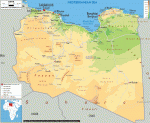
Libya
POPULATION: 6.259 million (2014) AREA: 679,400 sq. mi. (1,759,540 sq. km) LANGUAGES: Arabic (official); Italian, English, Berber dialects NATIONAL CURRENCY: Libyan Dinar PRINCIPAL RELIGIONS: Muslim (Sunni) 97% CITIES: Tripoli (capital), 1,822,000 (2000 est.); Benghazi, Misurata ANNUAL RAINFALL: Varies from about 4 in. (100 mm) in the steppe to less than half an inch (12.5 mm) in parts of the Sahara desert ECONOMY: […]
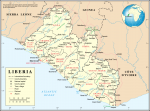
Liberia
POPULATION: 4.397 million (2014) AREA: 43,000 sq. mi. (111,370 sq. km) LANGUAGES: English (official); Mande, Kru, Bassa, Vai, Kpelle, others NATIONAL CURRENCY: Liberian dollar PRINCIPAL RELIGIONS: Traditional 70%, Muslim 20%, Christian 10% CITIES: Monrovia (capital), 962,000 (1999 est.); Greenville, Buchanan, Robertsport, Harper ANNUAL RAINFALL: Ranges from 203 in. (5,210 mm) on northwestern coast, to 100 in. (2,540 mm) at southeastern tip of country, […]
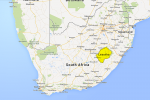
The Kingdom of Lesotho
POPULATION: 2.109 million (2014) AREA: 11,720 sq. mi. (30,555 sq. km) LANGUAGES: English, Sesotho (both official) NATIONAL CURRENCY: Maloti PRINCIPAL RELIGIONS: Christian 80%, Traditional 20% CITIES: Maseru (capital), 400,200 (1995 est.); Leribe, Mafeteng ANNUAL RAINFALL: 25 in. (635 mm) ECONOMY: GDP $2.088 billion (2014) PRINCIPAL PRODUCTS AND EXPORTS: Agricultural: livestock, mohair, corn, wheat, sorghum, peas, beans, potatoes, asparagus Manufacturing: food and beverages, […]
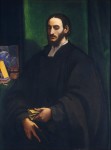
Leo Africanus
ca. 1485–ca. 1554 Arab geographer Leo Africanus was an Arab geographer who make numerous journeysin the northern and western regions Africa and wrote a bookabout the places he visited. Born in Spain and educated in MOROCCO, hetraveled extensively throughout North Africa and made three trips to EGYPT. South of the Sahara, he visited Gao and […]
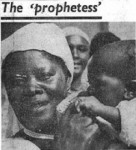
Lenshina, Alice
1920–1978 Zambian religious leader and prophet Alice Lenshina was the founder of a PROPHETIC MOVEMENT that gathered tens of thousands of followers. In the 1960s she led an uprising against the colonial government in ZAMBIA. Lenshina was born in northern Zambia among the Bemba people. As a young woman, she was preparing to join the Presbyterian Church at the mission center […]
Lebanese Communities
West Africa is home to many Lebanese immigrants and their descendants, most of whom are shopkeepers and small business owners. The first Lebanese arrived in the region in the late 1800s, and many of those who came later were following relatives. Lebanese immigration increased sharply between World Wars I and II. Many of the immigrants settled in SENEGAL and other […]
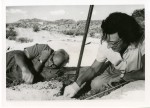
Leakey Family
For two generations, the Leakey family of KENYA has contributed significantly to paleoanthropology—the study of early humans and their ancestors—in Africa. Fossils discovered by the Leakeys helped establish the continent as the site of human origins. Members of the family who participated in this research include Louis S.B. Leakey (1903–1972); his second wife, Mary Douglas Leakey (1913–1996); their son, Richard […]
Laws and Legal Systems
The laws and legal systems of Africa have developed from three distinct legal traditions: traditional or customary African law, Islamic law, and the legal systems of Western Europe. In many cases European or Islamic legal traditions have replaced or significantly modified traditional African ones. Even so, customary law still exerts a strong influence in some areas of African life. AFRICAN […]
Languages
With more than 1,500 different languages, Africa boasts greater linguistic variety than any other continent. The tremendous range includes major languages such as Swahili and Hausa, spoken by millions of people, and minor languages such as Hazda, which have fewer than a thousand speakers. The linguistic situation is constantly changing. While many of the continent's major languages are rapidly […]
Land Ownership
In modern Africa conflicting views about land ownership cause legal, political, and economic problems. Traditional African ideas concerning the use, inheritance, and disposal of land differ sharply from those of Western nations. During the colonial era, European powers usually imposed their own ideas about ownership on their African territories, often ignoring indigenous practices. The resulting confusion about land use and ownership […]

Lagos
Lagos is the chief port and former capital city of NIGERIA. Founded by the YORUBA people in the 1400s, Lagos developed into a large regional trading post. By the 1790s it had become a major center of the Atlantic SLAVE TRADE. The British navy bombarded Lagos in 1851, and ten years later Britain gained control over the city through […]
Labor
Africa has a number of different labor systems that reflect an economy in the process of change. Still occupying an important role are the traditional forms of work and division of labor based on subsistence farming. Industrial capitalism has brought new forms of labor organization that have transformed Africa—without completely displacing the earlier systems. AFRICAN LABOR SYSTEMS Africa is still […]

La Guma, Alex
1925–1985 South African writer Alex la Guma was a South African writer of mixed race. His novels portray the experiences of nonwhites living under APARTHEID, the policy of racial segregation followed in SOUTH AFRICA from 1948 to 1994. The son of a well-known trade union leader in CAPE TOWN, la Guma became politically active at an early age. When […]
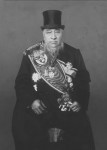
Kruger, Paul
1825–1904 South African political leader Paul Kruger led the Dutch AFRIKANER REPUBLICS in their war against British control in the late 1800s and early 1900s. Kruger was born in Cape Colony in what is now SOUTH AFRICA. When the British tried to take over the region, his family fled in what became known as the Great Trek—the migration of […]
Kourouma, Ahmadou
1927–2003 African novelist Ahmadou Kourouma, a celebrated writer, is the author of two of the most famous African novels in French. In his work he criticizes postcolonial governments and one-party political systems. He also describes the despair felt by many Africans when independence failed to fulfill their expectations. These themes have appeared in many works written by French-speaking Africans. Born […]
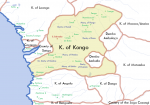
Kongo
Kongo was the name of a west-central African kingdom that emerged in the late 1400s and eventually became part of the Portuguese colony of ANGOLA. Kongo was initially a federation of several small states, whose people elected its king. Over time the kings concentrated power and resources in the capital at Mbanza Kongo and established a more centralized government. They […]
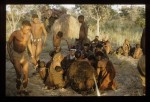
Kinship
Kinship is the web of relationships woven by family and marriage. Traditional relations of kinship have affected the lives of African people and ethnic groups by determining what land they could farm, whom they could marry, and their status in their communities. Although different cultures have recognized various kinds of kinship, traditional kinship generally means much more than blood ties […]
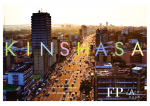
Kinshasa
Located on the CONGO RIVER, Kinshasa is the capital and largest city of the Democratic Republic of CONGO. Stone tools found in the area indicate that the site has been inhabited since the 7000s B.C. When the explorer Henry Morton STANLEY arrived in the region in the 1880s, Kinshasa was a small fishing village. Stanley signed a treaty with […]
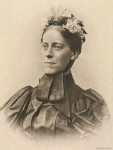
Kingsley, Mary Henrietta
1862–1900 British traveler While growing up in London, Mary Kingsley followed her father's travels around the world with great interest. His adventures and her own reading fueled her desire to explore the globe herself. After both parents died in 1892, Kingsley decided to travel. In the years between 1893 and 1895 she made two trips to Africa, visiting ANGOLA, the […]
Kings and Kingship
Kings have ruled in Africa at least since the time of the pharaohs, the early Egyptian kings who came to power about 3000 B.C. EGYPT's system of royal rule lasted for nearly 3,000 years. Other kingdoms developed in western North Africa and large areas south of the Sahara desert. Some African kings ruled up to 1 million people, as […]
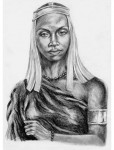
Kimpa Vita
ca. 1686–1706 African religious leader Kampa Vita was a member of the nobility in the west-central African kingdom of KONGO. For a time, she was a nganga, a person who performed certain important rituals. After recovering from an illness, she claimed to have died and returned to life possessed by the spirit of the Christian saint Anthony. Taking the […]
Kimbangu, Simon
ca. 1887–1951 Congolese religious leader Simon Kimbangu was born in the Lower Congo (now CONGO, KINSHASA) and raised as a Baptist. Although not a member of the clergy, he began to preach in British missions in 1918. He also experienced a series of spiritual dreams and visions. In an effort to escape them, he moved to the city of […]
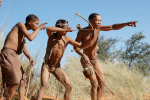
Khoisan
Khoisan is a name often given to the non–BANTU-speaking peoples of southern Africa formerly called Bushmen (or San) and Kxoe (or Khoi). The Khoisan do not have a common culture or ethnic background. Instead they share a unique family of languages, which features the use of “clicks.” Khoisan peoples have inhabited southern Africa for more than 20,000 years. Rock paintings […]
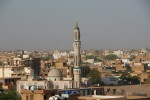
Khartoum
Khartoum is the capital and political and industrial center of SUDAN. Its strategic location at the meeting point of two rivers, the Blue Nile and White Nile, made it a much-contested prize. In 1821 northern Sudan was conquered by the Ottoman Turks. They established an outpost at nearby Omdurman, and set up a military camp at Khartoum. Three years later […]
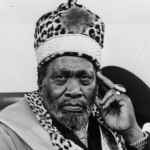
Kenyatta, Jomo
1888 (or 1889)–1978 President of Kenya Jomo Kenyatta, the most important African leader in colonial KENYA, served as the country's first president after independence. A member of the GIKUYU ethnic group, Kenyatta was born Kamauwa Muigai, and later baptized under the name Johnstone. After leaving the Scottish mission school he attended as a youth, he changed his name to Jomo […]
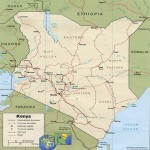
Republic of Kenya
POPULATION: 44.86 million (2014) AREA: 224,960 sq. mi. (582, 646 sq. km) LANGUAGES: English, Swahili (official); Gikuyu, Nandi, Kamba, Luhya, Luo NATIONAL CURRENCY: Kenya shilling PRINCIPAL RELIGIONS: Protestant 38%, Roman Catholic 28%, Traditional 26%, Muslim 7%, Other 1% CITIES: Nairobi (capital), 2,000,000 (1999 est.); Mombasa, Nakuru, Kitale, Nyeri, Kisumu, Thika, Malindi, Kericho ANNUAL RAINFALL: Varies from 29 in. (750 mm) in the highlands […]
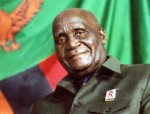
Kaunda, Kenneth
1924– President of Zambia Kenneth Kaunda served as ZAMBIA's first president and became a prominent political leader within Africa. Born in what was then Northern Rhodesia, Kaunda trained as a teacher but became active in politics in the 1950s. He organized the local branch of the African National Congress, the country's first political party, and later served as the party's […]
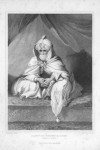
Kanemi, Muhammad al-Amin al-
ca. 1775–ca. 1837 Scholar and ruler of Bornu Muhammad al-Kanemi was born in southwestern LIBYA and received an extensive Muslim education in both Africa and Arabia. He traveled widely, finally settling in the kingdom of BORNU in north central Africa in 1799. There he attracted a large following of scholars. Soon after his arrival, the ruler of Bornu asked for […]
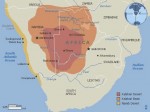
Kalahari Desert
The Kalahari Desert is a large, sandy plain in southern Africa with forested regions in its northern reaches. Really a semidesert or dry savanna rather than a true desert, the Kalahari measures about 1,000 miles from north to south and 600 miles from east to west at its broadest points. About 100,000 KHOISAN people and approximately 1.5 million BANTU-speaking people […]
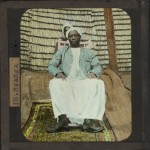
Kagwa, Apolo
ca. 1868–1927 Prime minister of Buganda Apolo Kagwa emerged as the leader of the Christian Party, one of thegroups struggling to control BUGANDA during the religious wars of the late 1800s. From 1889 to 1926, he served as katikiro (prime minister) of the semi-autonomous kingdom of Buganda under British authority. In 1897 Kagwa helped overthrow Buganda's King Mwanga […]
Kadalie, Clements
ca. 1896–1951 South African labor leader Clements Kadalie, an early African labor leader, organized a black union that challenged white rule in SOUTH AFRICA. After graduating from high school in his home country of Nyasaland (now MALAWI), Kadalie traveled through southeastern Africa. He arrived in CAPE TOWN in 1918. That year he founded the Industrial and Commercial Workers Union of […]

Kabarega
ca. 1850–1923 King of Bunyoro-Kitara Kabarega was ruler of the kingdom of Bunyoro-Kitara in what is now the nation of UGANDA. During his reign he expanded the empire and led a determined resistance to British colonization in East Africa. Although some historians consider Kabarega a tyrant and a murderer, others see him as a hero and an early African […]

Judaism in Africa
Judaism in Africa is represented mainly by two separate groups of people: Jews from Europe and the Middle East and indigenous Africans who claim Jewish or Israelite descent. Jews from the Middle East arrived in Africa before A.D. 400, settling mainly in North African countries such as EGYPT and ALGERIA. Most worked as artisans, merchants, or laborers. In the […]
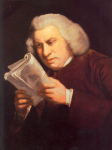
Johnson, Samuel
1846–1901 Yoruba historian Samuel Johnson was the author of the first important history of the YORUBA people. The son of a liberated slave and descendant of African kings, Johnson was born in SIERRA LEONE. At the age of 11, he and his family moved back to Yorubaland in what is now NIGERIA. Educated in schools run by the Church […]

Johannesburg
Johannesburg is the largest city in SOUTH AFRICA. It was renamed Greater Johannesburg in 1994, when its boundaries were extended to include surrounding suburbs. With a population of more than 5 million people, Greater Johannesburg is growing faster than any other major city in Africa. Geography and Peoples Greater Johannesburg is located inland on the Highveld, South Africa's broad central […]

Ivory Trade
For centuries ivory—the material of elephant tusks—was one of the most sought-after luxury items from Africa. A brisk ivory trade developed in ancient times, linking hunters deep within the continent to markets around the world. By the 1980s elephants had been hunted nearly to extinction, and most nations banned the ivory trade. Egyptian records show that Africans were trading […]
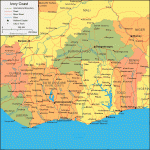
Ivory Coast
POPULATION: 20.80 million (2014) AREA: 124,503 sq. mi. (322,463 sq. km) LANGUAGES: French (official); Dioula (Djula), other native languages NATIONAL CURRENCY: CFA franc PRINCIPAL RELIGIONS: Muslim 60%, Christian 22%, Traditional 18% CITIES: Yamoussoukro (political capital), 120,000 (1999 est.), Abidjan (economic capital), 2,793,000 (1999 est.); Bouake, Man, Gaghoa, Grand-Bassam, Bingerville ANNUAL RAINFALL: Varies from 50–94 in. (1,270–2,413 mm) on the coast to 50–60 in. (1,270–1,542 […]
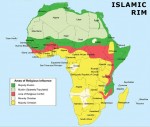
Islam in Africa
The religion of Islam arose in the Arabian city of Mecca around A.D. 610 through the work of its prophet Muhammad. After Muhammad died in 632, his teachings were carried into Africa by Arab traders, settlers, and soldiers. By conversion and conquest, Islam spread across North Africa, into the eastern Horn of Africa, and even over the SAHARA DESERT into […]
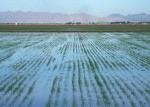
Irrigation and Flood Control
For thousands of years, Africans have sought to manage the flow of water through their landscape. The continent’s unreliable rainfall and frequent droughts make irrigation an essential tool for agriculture. In addition, various rivers flood frequently, and many people live in the floodplains surrounding them. Farmers and engineers have devised a variety of irrigation and flood control systems to make […]
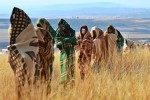
Initiation Rites
Initiation rites are ceremonies performed when people take on a new role in life. In various parts of Africa, such rites may usher individuals into adulthood, secret societies, or positions of leadership. They are one of several types of rites of passage—the ceremonies that mark a person's progress through the stages of life. Initiation rites vary from one society […]

Indian Communities
Although people from India had reached Africa many centuries ago, large groups of Indians did not settle there until the second half of the 1800s. At that time Britain ruled India as well as a number of colonies in Africa. The British presence in both regions made it possible for many Indians to migrate to eastern, central, and southern […]
Independence Movements
Between 1957 and 1993 nearly 50 African states achieved independence from colonial rule. The first sparks of resistance to foreign control took shape much earlier, though, in some cases hundreds of years earlier. Independence movements developed throughout Africa in the mid-1900s. Although they followed different paths, they shared a common beginning: resistance to domination by foreign powers. Unfortunately, once in control, […]
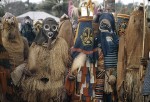
Igbo
The Igbo (or Ibo) are one of the three principal ethnic groups in NIGERIA. Their homeland, Igboland, straddles the NIGER RIVER and covers a territory of some 16,000 square miles. But the Igbo, who number about 20 million, can be found throughout Nigeria, not just around the Niger River. They form one of the largest ethnic groups in Nigeria's Delta […]

Ibn Battuta
1304–ca. 1369 Arab traveler Born in Tangier in Morocco, Abu Abdallah Muhammad ibn Battuta was one of the most widely traveled individuals of the Middle Ages. Trained as a religious lawyer, he set out at the age of 21 on a pilgrimage to the Muslim holy city of Mecca. Before he died he had visited almost the entire Islamic […]
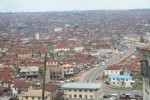
Ibadan
Ibadan, the second largest city in NIGERIA, is located on a group of seven hills in the southwestern part of the country. The city began as a military camp about 1829, and it grew into the most powerful town of the YORUBA people. Unlike other Yoruba settlements, Ibadan had an open society where advancement depended on talent rather than […]
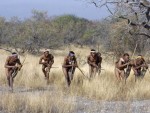
Hunting and Gathering
Hunting and gathering refers to a system of securing food through the hunting of wild game and the gathering of roots or wild plants. Hunting may be an individual or group effort. One person may hunt using a bow and arrow or a simple trap, or a group of people may cooperate by chasing prey into a pit or […]
Hunger and Famine
One of the most enduring modern images of Africa is that of a land plagued by hunger and famine. Pictures of Africans starving during droughts and of hungry REFUGEES fleeing civil war appear in the news media every few years. While hunger and famine are ongoing problems for many Africans, their severity, causes, and solutions are often misunderstood or misrepresented. […]

Humans, Early
In 1871 Charles Darwin, the man who gained fame with his theory of evolution, discussed the origins of humans in a book called Descent of Man. Darwin noted that chimpanzees and gorillas—humans' closest animal relatives—are found only in Africa and suggested that Africa was also the birthplace of the human species. Modern paleoanthropologists—the scientists who study early humans and […]

Human Rights
At the end of the colonial era, each new African nation became responsible for ensuring the human rights of its citizens. Unfortunately, the continent's record since then has been very poor, with widespread abuses ranging from censorship of the press to genocide. By the early 2000s, many international organizations had become involved in promoting human rights in Africa and conditions […]
Houses and Housing
Houses and housing issues in Africa vary dramatically between rural and urban areas. People in most rural areas build houses using long-established methods that suit traditional ways of life. The situation is quite different in the continent's rapidly growing cities. Increases in population density, government regulations, and the diverse lifestyles of city dwellers have combined to create a housing crisis […]
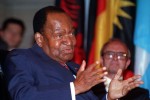
Houphouet-Boigny, Felix
1905–1993 President of Ivory Coast Felix Houphouet-Boigny, who served as president of IVORY COAST for 33 years, was one of the most powerful and influential politicians in Africa. The son of a wealthy Baule chief, he attended French colonial schools and received a degree as an African physician, the highest medical degree an African could obtain under French colonial […]
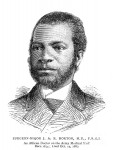
Horton, James Africanus
1835–1883 Sierra Leonean physician James Africanus Beale Horton, an IGBO from West Africa, became a physician and served for 20 years as a medical officer and administrator. He also wrote books on medicine and on the political situation in the region. Born in SIERRA LEONE to a father who had been rescued from a slave ship, Horton grew up […]
History of Africa
Tracing the history of Africa has presented a challenge to historians because of the lack of written records for much of the continent's past. Until recently most information had come from reports of foreign visitors, traders, and invaders over the last several hundred years. Historians of Asia and Europe, by contrast, have been able to use ancient records to construct […]
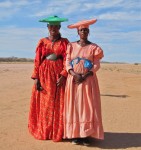
Herero
The Herero are a Bantu-speaking people of southern ANGOLA, NAMIBIA, and BOTSWANA. Their traditional herding society consisted of clans that traced their descent from both female and male ancestors. In the 1840s the Namibian Herero formed alliances with local chiefs, traders, and German missionaries. With the help of their allies, the Herero acquired firearms and increased their power. Eventually, three Herero […]

Health Care
The state of health and health care in Africa is influenced in a dramatic way by the continent's poverty. Hospitals, clinics, trained medical personnel, and needed medicines are all in short supply, and available resources are often too far away or too expensive for the average African. These realities have shaped the organization and functioning of health care systems in […]
Healing and Medicine
African ideas of healing and medicine have been shaped by both indigenous and imported traditions. For thousands of years, African peoples have practiced forms of healing and medicine that involve both natural and supernatural explanations and remedies. The ancient Egyptians developed medical practices that influenced neighboring civilizations, including Greece and Rome. Then Greek and Roman ideas about health and sickness had […]
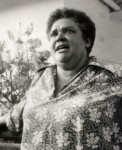
Head, Bessie
1937–1986 Botswanan writer Bessie Head is the author of several novels and short stories about the political and social conditions of African society. She was the illegitimate daughter of a white South African woman and a black stable hand. Head spent most of her childhood in the home of a mixedrace foster family in SOUTH AFRICA. At age 13, […]

Hausa
The Hausa are the largest ethnic group in West Africa. Since ancient times their people have lived in the region between Lake Chad and the Niger River. Hausa kings ruled their states from large, walled cities and established successful trading networks. Today, the largest group of Hausa lives in NIGERIA, but NIGER, CHAD, and GHANA also have Hausa populations. Originally, […]
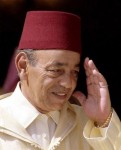
Hassan II
1929–1999 King of Morocco Hassan II, king of MOROCCO from 1961 until his death, was credited with preserving the Moroccan monarchy. During his reign he introduced a number of democratic reforms and tried to build closer ties with the United States and other Western countries. Educated in both Arabic and French, Hassan studied law at the University of Bordeaux […]
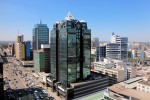
Harare
Harare is the capital and largest city in ZIMBABWE. Founded in 1890 by British colonists, it was originally called Salisbury. After independence in 1980, the city was renamed Harare for Neharare, an important local chieftain who had lived in the area. Situated in a highland region at an elevation of 4,865 feet, Harare has a mild climate. It is […]
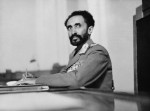
Haile Selassie I
1892–1975 Emperor of Ethiopia The emperor of ETHIOPIA from 1930 to 1974, Haile Selassie I sought to transform Ethiopia into a modern nation. He also hoped that Ethiopia would take a leading role in Africa. Born Lij Tafari Makonnen, Selassie was the son of an adviser to Emperor MENILEK II. The emperor recognized Selassie's abilities and promoted him to […]
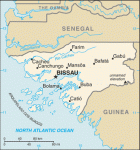
Republic of Guinea-Bissau
POPULATION: 1.801 million (2014) AREA: 13,948 sq. mi. (36,125 sq. km) LANGUAGES: Portuguese (official); Crioulo, Balante, Fula, Malinke NATIONAL CURRENCY: Guinea peso PRINCIPAL RELIGIONS: Traditional 50%, Muslim 45%, Christian 5% CITIES: Bissau (capital), 233,000 (1995 est.); Bafata, Bissora, Bolama, Cacheu, Teixeira Pinto, Farim, Gabu, Mansoa ANNUAL RAINFALL: Varies from 49 in. (1,250 mm) in the northeast to 108 in. (2,750 mm) along the […]
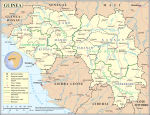
Republic of Guinea
POPULATION: 12.28 million (2014) AREA: 94,925 sq. mi. (245,856 sq. km) LANGUAGES: French (official); many indigenous languages NATIONAL CURRENCY: Guinean franc PRINCIPAL RELIGIONS: Muslim 85%, Christian 8%, Traditional 7% CITIES: Conakry (capital), 1,558,000 (1999 est.); Kankan, Siguiri, Labe, Kindia ANNUAL RAINFALL: Varies from 170 in. (4,300 mm) at the coast to 80 in. (2,000 mm) 125 miles (200 km) inland. ECONOMY: GDP $6.624 […]

Government and Political Systems
The political systems of most African nations are based on forms of government put in place by colonial authorities during the era of European rule. Because these governmental institutions reject the indigenous political systems on which African society was built, they have generally failed to bring political stability. Many local and regional governments borrow from indigenous systems, but national political structures […]
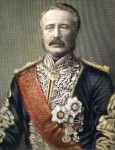
Gordon, Charles George
1833–1885 British general in Sudan General Charles George Gordon fought for Britain in Europe, Asia, and Africa. Killed defending the city of KHARTOUM in SUDAN, he was regarded by the British as a hero and a martyr. Born in Woolwich, near London, Gordon entered the military in 1852. He fought Britain's wars in various parts of the world, earning […]

Gordimer, Nadine
1923–2014 South African writer Nadine Gordimer, a prizewinning author, has written extensively about life in SOUTH AFRICA under APARTHEID—a policy of racial segregation followed from 1948 to 1994. Born in a white family in South Africa, Gordimer left school at the age of 10 for medical reasons. She was educated at home and in her local library. By the […]
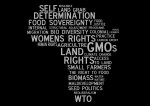
Global Politics and Africa
Global politics, or geopolitics, refers to the relationships and interactions among nations as they compete for power, influence, and economic resources. Since the 1600s the global politics of Africa have been marked by dependence on others. To a large extent, Africans have been under the control of outsiders from the time of the transatlantic SLAVE TRADE, to European colonial rule, […]
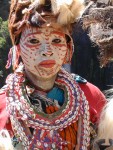
Gikuyu
Numbering well over 4 million people, the Gikuyu (also known as the Kikuyu) are the largest ethnic group in KENYA. They live in the high, fertile region between Mount Kenya and the capital city of NAIROBI. Their language, also called Gikuyu, is one of the Bantu languages. Traditionally, Gikuyu societies were based on farming, particularly millet and root crops, and […]
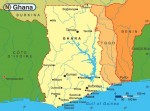
Republic of Ghana
POPULATION: 26.44 million (2014) AREA: 92,098 sq. mi. (238,534 sq. km) LANGUAGES: English (official); Dagbani, Ewe, Fante, Ga, Moshi-Dagomba NATIONAL CURRENCY: Cedi PRINCIPAL RELIGIONS: Traditional 38%, Muslim 30%, Christian 24%, Other 8% CITIES: Accra (capital), 1,673,000 (1999 est.); Kumasi, Tamale, Takoradi, Cape Coast, Tema, Sekondi ANNUAL RAINFALL: Varies from 29–39 in. (750–1,000 mm) in the southeast coastal savanna to 59–82 in. (1,500–2,100 mm) […]

Genocide and Violence
Genocide refers to the deliberate and systematic killing of an ethnic, racial, or religious group. In recent years Africa has had a tragic history of genocide and violence. Millions of lives have been lost in civil wars and other conflicts, while tens of millions of Africans have had to flee their homelands and live as refugees. The increase of […]
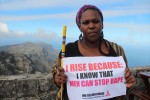
Gender Roles and Sexuality
Gender roles are the activities, responsibilities, and rights that a society considers normal and appropriate for men and women. There is no single model of gender roles in Africa. The continent's diverse cultures have many different ideas about male and female roles, although in general women have been subordinate to men in both public and family life. Like gender roles, […]

Garvey, Marcus Mosiah
1887–1940 Pan-African leader Marcus Mosiah Garvey played an important role in Pan-Africanism, a movement aimed at unifying blacks throughout the world in protest against racism and colonialism. At the time, most of Africa was controlled by European colonial powers. One of Garvey's greatest contributions was making the world aware of the problems that blacks in Africa faced under their rule. […]

Republic of the Gambia
POPULATION: 1.909 million (2014) AREA: 4,361 sq. mi. (11,295 sq. km) LANGUAGES: English (official); Mandinka, Wolof, Fula NATIONAL CURRENCY: Dalasi PRINCIPAL RELIGIONS: Muslim 90%, Christian 9%, Traditional 1% CITIES: Banjul (capital), 42,407 (1993 est.); Brikama, Basse, Bakua, Farafenni, Serekunda, Kuntaur, Bansang ANNUAL RAINFALL: 40 in. (1,016 mm) ECONOMY: GDP $807.1 million (2014) PRINCIPAL PRODUCTS AND EXPORTS: Agricultural: livestock, peanuts, rice, palm kernels, fish, […]
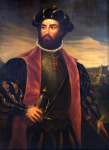
Gama, Vasco da
ca. 1460–1524 Portuguese navigator and discoverer Vasco da Gama discovered the route around Africa to India and changed the nature of trade between east and west. Bartolomeu Dias was the first European to sail around Africa's Cape of Good Hope and into the Indian Ocean. In 1497 the Portuguese ruler Manuel I sent Vasco da Gama on a voyage that […]
Galawdewos
ca. 1522–1559 Emperor of Ethiopia Galawdewos took the throne of ETHIOPIA in 1540. At the time much of the country was under the control of Ahmed Gran, leader of the Muslim kingdom of Adal. When a Portuguese expedition arrived in Ethiopia in 1541, Galawdewos formed an alliance with its leader, Cristovao da Gama, to fight the Muslims. Gran killed […]
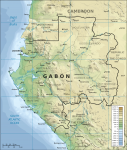
Gabon
POPULATION: 1.711 million (2014) AREA: 103,347 sq. mi. (267,658 sq. km) LANGUAGES: French (official); Fang, Mpongwe, Eshira NATIONAL CURRENCY: CFA franc PRINCIPAL RELIGIONS: Christian 60%, Traditional 40%, about 3,000 Muslims CITIES: Libreville (capital), 462,000 (1999 est.); Port-Gentil, Franceville, Lambarene ANNUAL RAINFALL: 100 in. (2,540 mm) on coast, 150 in. (3,810 mm) in interior ECONOMY: GDP $17.23 billion (2014) PRINCIPAL PRODUCTS AND EXPORTS: […]
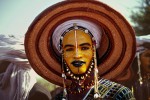
Fulani
Today one of the largest ethnic groups in West Africa, the Fulani (or Fulbe) were first recorded as living in the Senegal River valley and western GUINEA. In about the 1100s, they expanded eastward. The Fulani are now widely scattered, with large concentrations in NIGERIA, SENEGAL, Guinea, MALI, CAMEROON, and NIGER. In French-speaking areas they are known as Peul. The […]
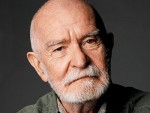
Fugard, Athol
1932– South African playwright Athol Fugard is one of Africa's best-known and most respected playwrights. His plays explore the personal suffering of individuals living under APARTHEID—the policy of racial segregation followed in SOUTH AFRICA from 1948 to 1994. Growing up in a poor white family placed Fugard in contact with the poor and oppressed black population of South Africa from […]